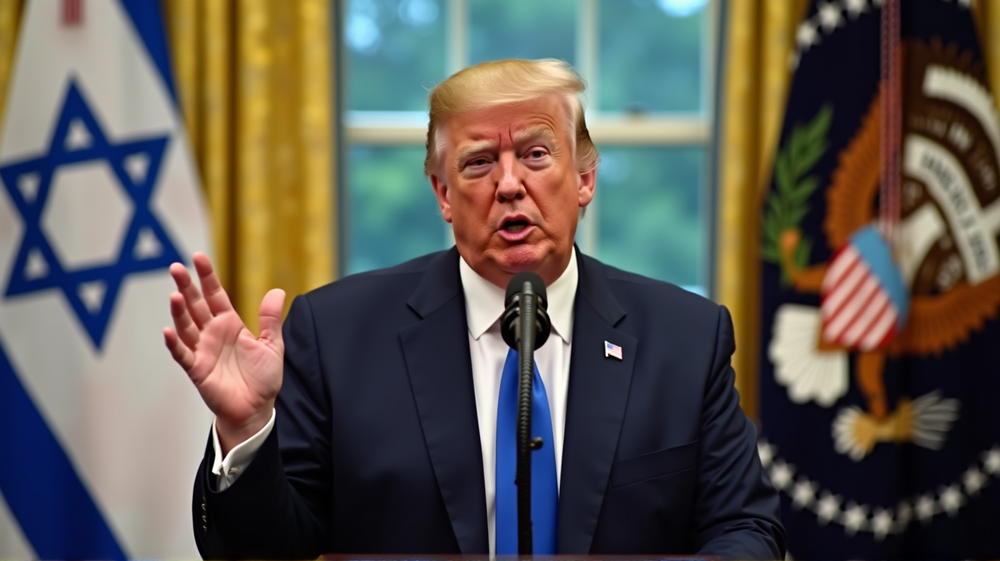A Sudden Shift in Policy
On July 31, 2025, the world watched as President Donald Trump made a pivotal announcement from the Roosevelt Room at the White House. With his characteristic assertive demeanor, Trump declared a revised 15% tariff on Israeli goods, effective in just seven days, a move that caught many by surprise. This policy shift reduced the initially set rate of 17% from an executive order issued in April, affecting a wide range of imported products from Israel.
Economic Ramifications and Reactions
The announcement immediately rippled through economic sectors, with analysts and stakeholders deliberating the potential effects on trade relationships between the United States and Israel. Manufacturers and exporters on both sides of the Atlantic are poised to reassess their strategies amidst this unexpected development. Furthermore, economists are speculating about the broader implications for global trade and diplomatic dialogues as this decision aligns with Trump’s history of reshaping foreign economic interactions.
Political Undertones
This tariff adjustment underscores Trump’s complex approach to international policy. It not only revises a prior directive but also emphasizes his administration’s readiness to adapt strategies based on evolving geopolitical needs and domestic economic goals. Political analysts suggest that this could be a strategic maneuver to bolster negotiations or a preparatory step in broader economic dealings with other allies.
Diplomatic Talks Expected
As the countdown to the tariff’s activation continues, Israeli officials are expected to seek clarity and possibly renegotiate terms. Diplomatic channels may become more active in the coming days, as leaders from both countries aim to maintain strong bilateral relations despite the economic tension. This move could potentially lead to new negotiations that might redefine aspects of the current trade agreements.
Public and Industry Observations
The public is closely observing how this decision will play out, as it reflects Trump’s firm stance on prioritizing American interests. Meanwhile, industries dependent on Israeli imports are assessing the potential costs and market impacts. Some business leaders express concern, whereas others view it as an opportunity for innovation and diversification in sourcing.
According to The Jerusalem Post, the full impact of this policy shift remains to be seen, but it’s clear that Trump’s tariffs continue to be a defining feature of his administration’s approach to international trade.
Looking Ahead
As stakeholders on all sides continue to evaluate the implications, the global economic community is keeping a keen eye on the ensuing developments. While this is not the first time Trump’s administration has taken such a path, its long-term effects on both the U.S. economy and its relationship with Israel are yet to unfold fully. What remains certain is that the next few days will be crucial in understanding the true extent of this political and economic strategy.












